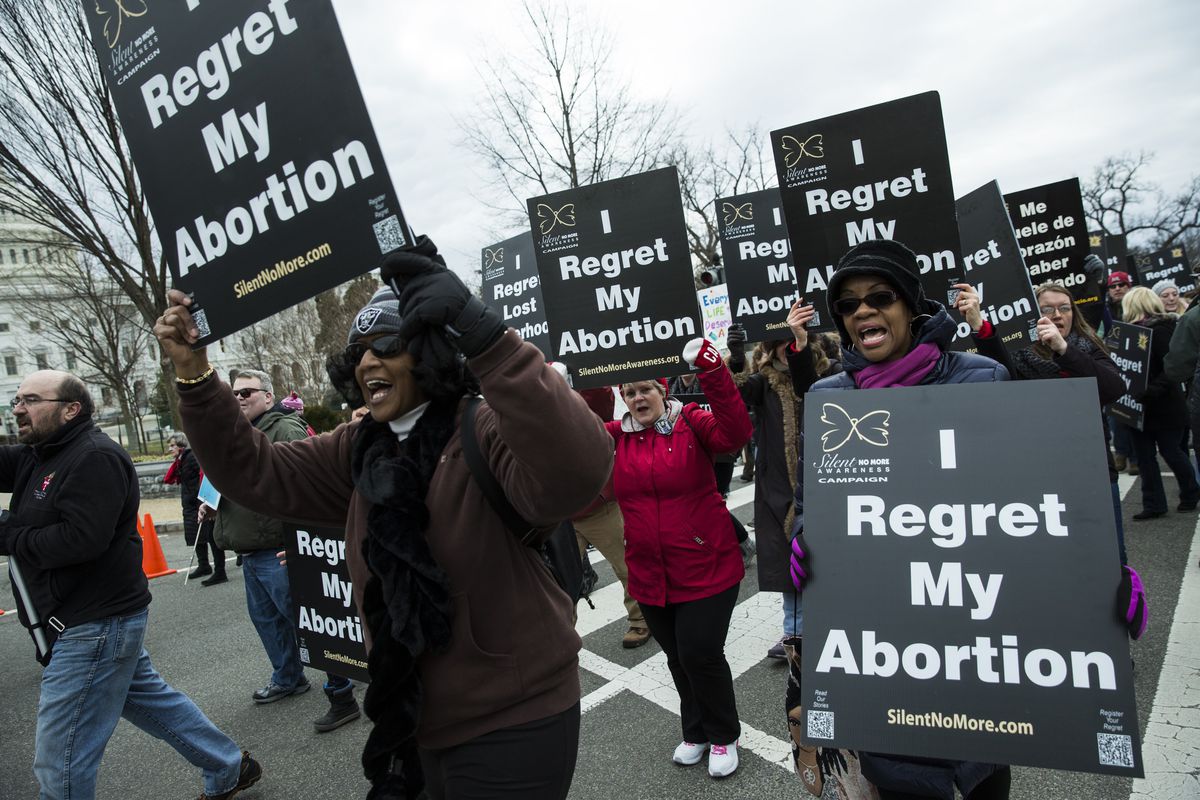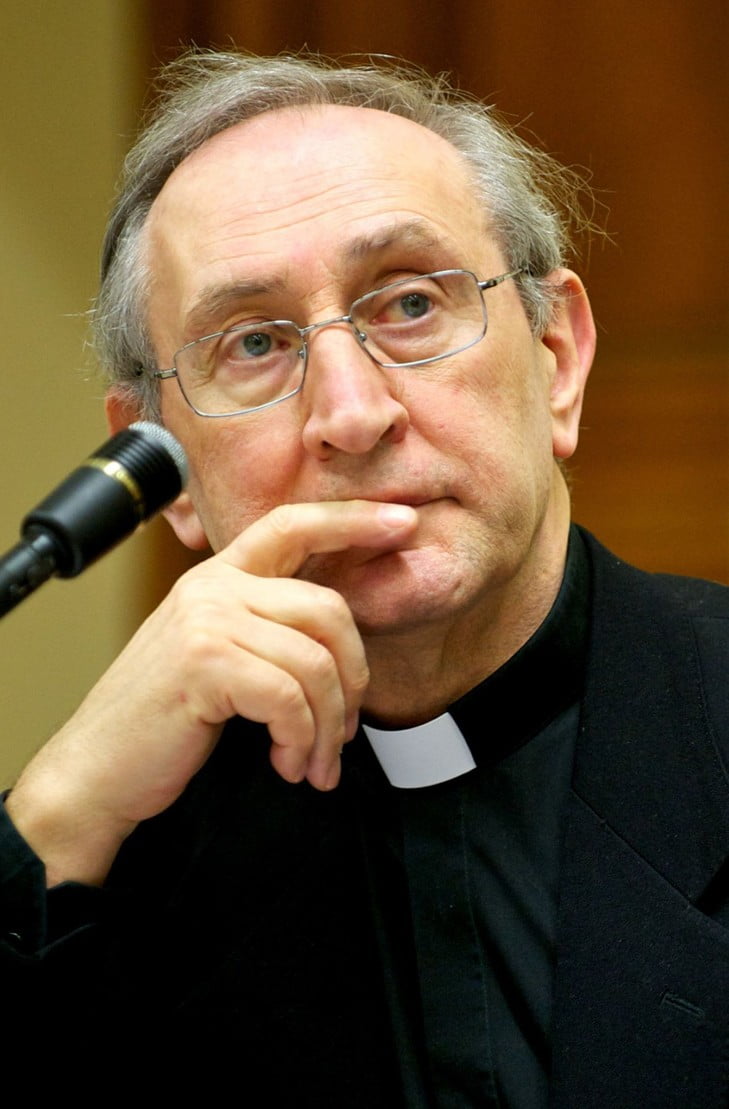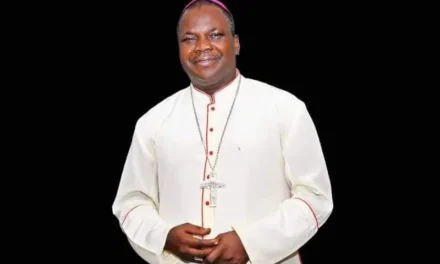Les dirigeants de l’Église qui ont parlé à notre agence de presse en référence aux tests d’avortement ont condamné le processus le qualifiant de regrettable, un grave péché pour les chrétiens qui y participent et une forme de dictature que l’Église est prête à combattre.
Le président du Symposium des conférences épiscopales d’Afrique et de Madagascar (SECAM), Philippe Cardinal Ouedraogo, a déclaré que le projet d’avortement faisait partie d’un schéma de «dictature» contre lequel l’Église du continent avait besoin de se défendre.
«Pour moi, c’est une véritable dictature. La dictature de la pensée humaine… La dictature de la pensée unique; et nous nous défendrons même si nous sommes faibles », a déclaré le cardinal Ouedraogo qui dirige l’archidiocèse de Ouagadougou au Burkina Faso.
Le prélat burkinabé de près de 75 ans a ajouté: «Nous n’allons pas nous laisser emporter par ce cours idéologique de la dictature, la dictature de la pensée unique».
Les sentiments du cardinal ont été repris par son compatriote, l’évêque Prosper Kontiebo du diocèse de Tenkodogo, qui a décrié l’avortement comme «une pitié et une forme d’esclavage auxquelles il faut s’opposer».
“Il est dommage que nous soyons à la traîne de ces ONG qui imposent une conduite qui n’est pas du tout chrétienne”, a déclaré l’évêque burkinabé à un organe de presse de renom dans une interview exclusive et a ajouté: “Il nous appartient, catholiques, de nous opposer à toutes ces idéologies et d’affirmer notre identité et de lutter contre toutes les formes d’esclavage, contre toutes les formes d’impositions de conduite ou de mœurs qui ne sont pas conformes à notre foi chrétienne. »
Pendant ce temps, expliquant la position de l’Église concernant l’avortement, le cardinal Ouedraogo a déclaré que cet acte était une «interruption volontaire d’une vie humaine qui a commencé» et que «c’est un acte horrible et très grave».
«Vous connaissez bien la position de l’Église. Toute vie est sacrée. La vie humaine est sacrée. L’homme ne peut pas en faire ce qu’il veut », a déclaré le cardinal burkinabé à la tête du Symposium des évêques d’Afrique, SECAM.
Il a ajouté: «Lorsque l’avortement est volontaire, il est considéré comme un acte grave, un crime. Le début d’une vie humaine représente une promesse d’avenir qui est irréversiblement interrompue. La morale chrétienne désapprouve donc l’avortement, car toute vie humaine doit être respectée. »
Selon lui, “un chrétien qui pratique un avortement ainsi que des complices d’un avortement commettent un péché grave et mortel”.
Les sentiments du Cardinal ont été repris par Mgr Justin Kientega, qui dirige la Commission pour la santé de la Conférence des évêques catholiques du Burkina Faso et du Niger.
«La personne humaine, de sa conception naturelle à la mort naturelle, ne doit pas être gênée en lui enlevant la vie parce que nous manquons d’éléments», a expliqué Mgr Kientega et ajouté, «l’Église dit que la personne humaine a toute sa dignité même en cas de handicap. quelque part. Nous ne pouvons donc pas nous permettre de l’éliminer de la sélection. »
L’évêque burkinabé a maintenu une position rigide contre l’élimination des enfants à naître en disant: «Je ne peux pas accepter cette position. Il y a le cas de l’inceste et tout ça. C’est la loi qui a voté et c’est nous qui voulions que cet être n’ait pas droit à notre société. »
Il a regretté que les procédures légales au Burkina Faso ne semblent pas correspondre à la position de l’Église.
«C’est Dieu qui a permis à cet enfant de venir au monde de cette façon; nous allons l’accueillir et bien sûr l’aider à s’intégrer dans la société et ne pas prendre la peine de trouver la solution pour l’éliminer », a déclaré Mgr Kientega qui est également président de Caritas Burkina Faso.
Il a ajouté: «Les lois civiles ne correspondent pas à une illustration d’une vision de l’église. Nous le soutenons simplement. »
Mécontentant également les tentatives d’avortement sur les femmes qui auraient échoué dans plusieurs cas, Mgr Dèr Raphaël Kusiélé Dabiré, du diocèse de Burkina Faso Diébougou, a déclaré que les avortements étaient “regrettables et faisaient écho à la conscience des pauvres et des ignorants”.
“C’est regrettable, c’est répréhensible de la part des organisations qui viennent acheter la conscience des pauvres ou des ignorants afin qu’ils puissent se faire avorter pour des raisons d’argent, alors que pour eux, les raisons qu’ils ont en tête sont différentes”, a déclaré Mgr Kusiélé.
Le prélat burkinabé de 71 ans considère les tests d’avortement comme profitant de l’ignorance des femmes africaines car «les filles ou les femmes qui participent à de tels actes sont parfois très ignorantes de ce dans quoi elles s’engagent».
Quant aux chrétiens qui ont participé à l’avortement ou aidé le processus, le cardinal Ouedraogo a conseillé un repentir sincère en disant: «Un chrétien qui pratique un avortement ainsi que ses complices commettent un péché grave et mortel. Ils doivent humblement demander pardon au Seigneur avant de recevoir l’Eucharistie. »
Le cardinal burkinabé a ajouté: «Pour les chrétiens, la vie humaine est en fin de compte un don de Dieu à accueillir et à respecter, surtout parce que ce sont les êtres les plus fragiles, les plus innocents que nous puissions imaginer.»
La quatrième partie, qui résume ce rapport, proposera aux dirigeants de l’Église de fournir une voie à suivre en ce qui concerne leur prise en charge des tests d’avortement sur les femmes africaines au Burkina Faso, après que les tests n’aient pas décollé aux États-Unis. xxx
After research initiatives on the effectiveness of abortion-inducing tablets for women who are at least 12 weeks pregnant failed to take off in the U.S., a research organization based in the same country decided, a couple of years ago, to cross several borders to the West African country of Burkina Faso to conduct the study, testing chemical abortion on women with limited resources, observed noted.
Church leaders who spoke to our news agency in reference to the abortion tests condemned the process terming it as regrettable, a serious sin for Christians who take part in it, and a form of dictatorship which the church is prepared to fight.
The President of the Symposium of Episcopal Conferences of Africa and Madagascar (SECAM), Philippe Cardinal Ouedraogo, said the abortion project was part of a scheme of “dictatorship” that the Church on the continent needed to defend itself against.
“For me it is a real dictatorship. The dictatorship of human thought … The dictatorship of one-track thinking; and we will defend ourselves even if we are weak,” said Cardinal Ouedraogo who heads the Archdiocese of Ouagadougou in Burkina Faso.
The nearly 75-year-old Burkinabe Prelate added, “We are not going to let ourselves be carried away by this ideological course of dictatorship, the dictatorship of the single thought.”
The Cardinal’s sentiments were echoed by his compatriot, Bishop Prosper Kontiebo of Tenkodogo Diocese who decried abortion as “a pity and a form of slavery that needs to be opposed.”
“It is a pity that we are lagging behind these NGOs that impose a conduct that is not at all Christian,” the Burkinabe Bishop told a renowned news body in an exclusive interview and added, “It is incumbent on us Catholics to oppose all these ideologies and to affirm our identity and to fight against all forms of slavery, against all forms of impositions of conduct or morals that are not in conformity with our Christian faith.”
Meanwhile, explaining the position of the Church concerning abortion, Cardinal Ouedraogo stated that the act was a “voluntary interruption of a human life that has begun” and that it “is a horrible and very serious act.”
“You are well aware of the Church’s position. All life is sacred. Human life is sacred. Man cannot do with it what he wants,” said the Burkinabe Cardinal at the helm of the Symposium of Bishops in Africa, SECAM.
He Cardinal added, “When abortion is voluntary, it is considered a serious act, a crime. The beginning of a human life represents a promise of the future that is irreversibly interrupted. Christian morality therefore disapproves abortion, because all human life must be respected.”
In his considered view, “a Christian who performs abortion as well as accomplices to an abortion commit a serious, deadly sin.”
The Cardinal’s sentiments were echoed by Bishop Justin Kientega who heads the Commission for Health of the Conference of Catholic Bishops of Burkina Faso and Niger.
“The human person from his natural conception to natural death must not be interfered with by taking his life because we lack elements,” Bishop Kientega argued and added, “the Church says that the human person has all his dignity even if there is a disability somewhere. So, we can’t afford to eliminate her from the selection.”
The Burkinabe Bishop maintained a rigid stance against elimination of unborn children saying, “I cannot accept that position. There is the case of incest and all that. It is the law that voted and we are the ones who wanted this being not to have the right to our society.”
He regretted that legal processes in Burkina Faso do not seem to correspond with the position of the Church.
“It is God who allowed this child to come into the world in this way; we will welcome him and of course help him to integrate into society and not bother to find the solution to eliminate him,” said Bishop Kientega who also serves as President of Caritas Burkina Faso.
He added, “The civil laws do not correspond with an illustration of a vision of the church. We just support it.”
Also spurning attempts of abortion on women which have reportedly gone wrong in several cases, Bishop Dèr Raphaël Kusiélé Dabiré of Burkina Faso’s Diébougou Diocese, said the abortions were “regrettable and are buying into the conscience of the poor and ignorant.”
“It is regrettable, it is reprehensible on the part of organizations that come to buy the conscience of the poor or the ignorant so that they can have an abortion for money reasons, while for them, the reasons they have in mind are different,” said Bishop Kusiélé.
The 71-year old Burkinabe Prelate views the abortion tests as taking advantage of the ignorance of African women since “the girls or women who take part in such acts are sometimes very ignorant of what they are getting into.”
As for Christians who have participated in abortion or aided the process, Cardinal Ouedraogo advised for sincere repentance saying, “A Christian who performs abortion as well as accomplices to an abortion commit a serious, deadly sin. They must humbly ask the Lord for forgiveness before receiving the Eucharist.”
The Burkinabe Cardinal added, “For the Christians, human life is ultimately a gift from God to be welcomed and respected, especially because it is the most fragile, the most innocent beings we can imagine.”
Part four, which sums up this report, will have Church leaders provide a way forward with regard to their take on abortion tests on African women in Burkina Faso, after the tests failed to take off in the U.S.
- Message of the Holy Father for the 58th World Day of Social Communications Marked on Sunday, May 12: - May 14, 2024
- COMBATING HUMAN TRAFFICKING IN NIGERIA: SISTER ANTHONIA M. ESSIEN AND HER HUMANITARIAN COMMITMENT - May 11, 2024
- SPES NON CONFUNDIT: Bull of Indiction of the Ordinary Jubilee of the Year 2025 - May 10, 2024







